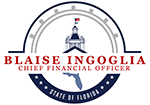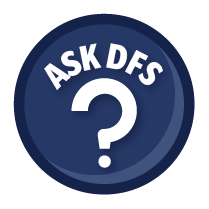Compliance Information: Adjusters
As a licensee it is important that you have access to information that helps you keep your insurance business in compliance. This section is an important tool to help you meet that goal.
However, these tools are not and cannot replace statutes, department rules, orders or case law. The items below are intended as reminders only and are not necessarily the exact text of the Florida Statutes or Florida Administrative Code. The legal cites have been provided for your further reference.
The work of adjusting insurance claims engages the public trust. When you adjust someone's claim you must put the duty for fair and honest treatment of the claimant above your own interests. All adjusters must adhere to the Code of Ethics which can be found in the Florida Administrative Code in rule 69B-220.201, F.A.C. If you are a public adjuster there are additional ethical constraints found in rule 69B-220.201(4)(5), F.A.C.
Company Employee Adjuster definition: 626.856, F.S.
Independent Adjuster definition: 626.855, F.S.
Public Adjuster definition: 626.854(1), F.S.
Public Adjuster Apprentice definition: 626.8561, F.S.
The Florida Bar has recently made it clear that if a public adjuster files a claim of lien against a customer on their behalf or on behalf of their adjusting firm, which is a fictitious entity requiring representation by a lawyer, it would be considered engaging in the unlicensed practice of law. There is no statutory authority to authorize the conduct as section 713.03, F.S, creates liens rights in favor of numerous occupations and professions, but fails to include public insurance adjusters.
Any public adjuster that engages in this type of activity is subject to disciplinary action by the Florida Bar and the Florida Department of Financial Services if a violation of the Florida Insurance Code is committed.
Attorneys at law duly licensed to practice law in the courts of this state, and in good standing with The Florida Bar, are not required to be licensed as an adjuster to adjust or participate in the adjustment of any claim, loss, or damage arising under policies or contracts of insurance. However, this exemption does not apply to non-attorneys working on behalf of, for, or with a law firm, attorney’s office, or other entity providing legal services (collectively referred to hereinafter as a “law firm”). If a law firm conducts adjusting business under a name other than the name of the law firm, or the firm employs licensed insurance adjusters performing services within the scope of the Florida Insurance Code, the firm will need to be licensed as an adjusting firm in accordance with Chapter 626, Florida Statutes.
Contractors that assist their customers with their insurance claims may illegally be engaging in the practice of public adjusting without being properly licensed by the Department of Financial Services.
The definition of a public adjuster, as explained in 626.854(1), F.S., is any person, except an attorney, who, for money or any other thing of value (which would include securing a contract for repairs):
Prepares, completes or files an insurance claim form for an insured.
Aids in any manner on behalf of an insured in negotiating for or effecting the settlement of a claim.
Advertises or solicits for employment as an adjuster of such claims.
If you are acting as a public adjuster in any manner by negotiating or effecting the settlement of an insurance claim on behalf of an insured and you are performing any of these services for money, commission or anything of value without being licensed as a public adjuster, you could be subject to arrest and may be charged with a third-degree felony as provided by section 626.8738, F.S.
If you become licensed as a public adjuster, you cannot enter into a contract to do both the public adjusting and construction work on the same property, according to section 626.8795, F.S.:
"A public adjuster may not participate, directly or indirectly, in the reconstruction, repair, or restoration of damaged property that is the subject of a claim adjusted by the licensee; may not engage in any other activities that may be reasonably construed as a conflict of interest, including soliciting or accepting any remuneration from, of any kind or nature, directly or indirectly; and may not have a financial interest in any salvage, repair, or any other business entity that obtains business in connection with any claim that the public adjuster has a contract or an agreement to adjust."
The Department of Financial Services has taken action against licensed contractors for illegally acting as a public adjuster or advertising the services performed by a public adjuster without being licensed.
If you are a contractor advertising your services to the public for the construction or repair of a covered property that may result in the property owner filing for reimbursement of your fees under their insurance policy, you should be sure that your advertising or solicitation materials do not imply that you will, as referenced in the definition of a public adjuster,
- Aid in any manner on behalf of an insured in negotiating for or effecting the settlement of a claim,
- Advertises or solicits for employment as an adjuster of such claims.
The use of phrases such as those listed here may imply that you will assist in adjusting the claim: “We handle insurance and claims negotiations”, “We have the skill and knowledge to handle the entire claim process ”, “We will take care of processing your insurance claim ” or ”We can reopen insurance claims on behalf of homeowners”.
The primary adjuster law states that each person operating an adjusting firm and each location of a multiple location adjusting firm must designate a primary adjuster for each such firm or location. The statute also defines a primary adjuster as the licensed adjuster who is responsible for the hiring and supervision of all individuals within an adjusting firm location who deal with the public and who acts in the capacity of a public adjuster as defined in s. 626.854, or an independent adjuster as defined in s. 626.855.
Primary adjusters must be designated through the adjusting firm's MyProfile account on the Department's website. There is no cost to designate a primary adjuster but it could cost you disciplinary action including a fine for failing to do so. [See Sections 626.112(9) and 626.8695, Florida Statutes]
Attorneys at law duly licensed to practice law in the courts of this state, and in good standing with The Florida Bar, are not required to be licensed as an adjuster to adjust or participate in the adjustment of any claim, loss, or damage arising under policies or contracts of insurance. However, this exemption does not apply to non-attorneys working on behalf of, for, or with a law firm, attorney’s office, or other entity providing legal services (collectively referred to hereinafter as a “law firm”). If a law firm conducts adjusting business under a name other than the name of the law firm, or the firm employs licensed insurance adjusters performing services within the scope of the Florida Insurance Code, the firm will need to be licensed as an adjusting firm in accordance with Chapter 626, Florida Statutes.

